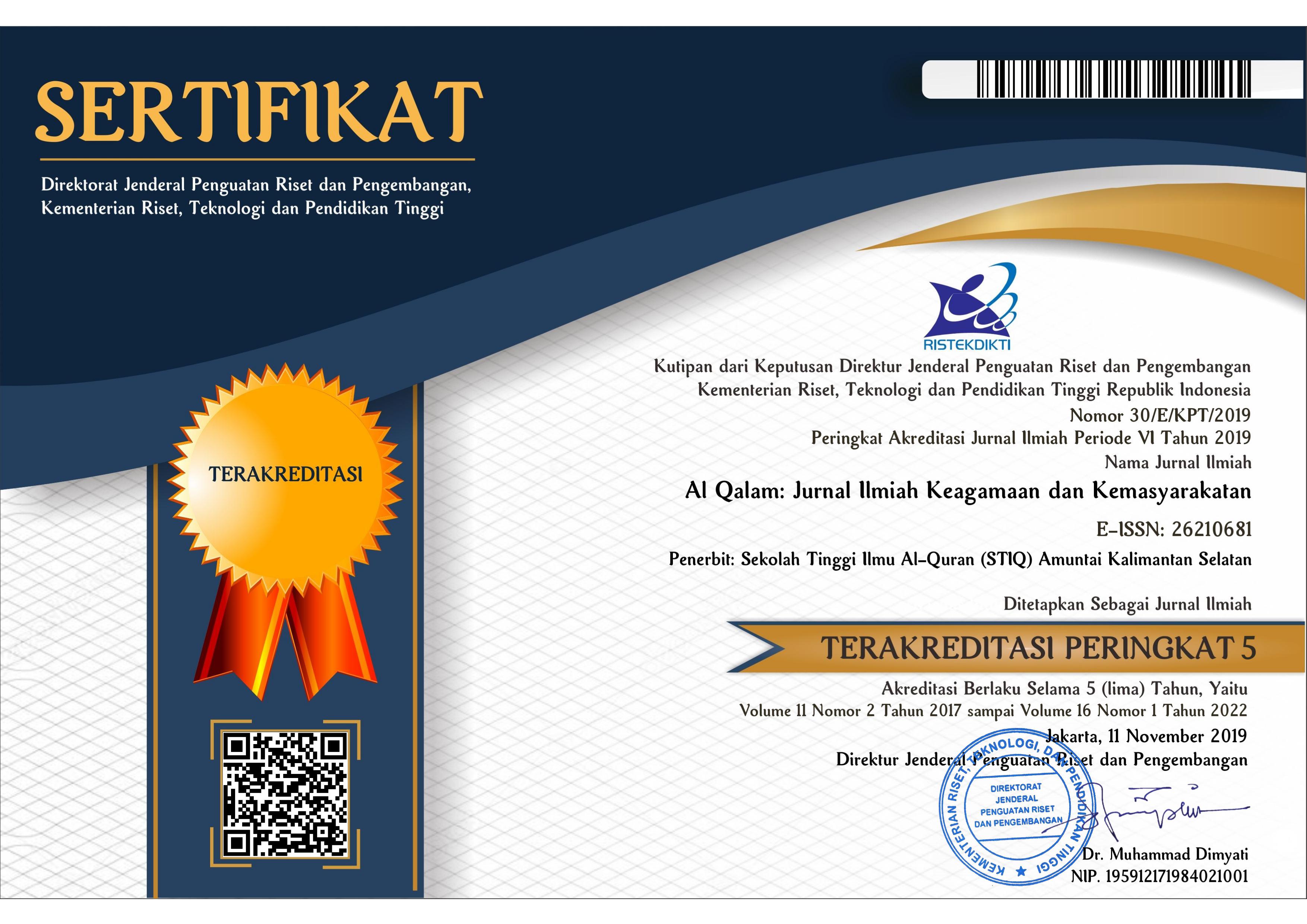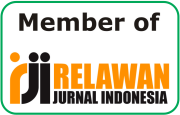Testing The Scientificity of Progressive Legal Theory Through Karl Popper's Falsification: A Study of the Philosophy of Science
Abstract
The development of scientific knowledgestarting from a problem that often arises because the existing theory is seen as unable to solve or is no longer adequate to overcome the problem. The progressive legal theory initiated by Satjipto Rahardjo was born when the existing legal theory was seen as no longer adequate to overcome legal problems in Indonesian society. However, the problem with the progressive legal theory that has not been seriously touched on so far is the scientific nature of the progressive legal theory as a theory from the perspective of the philosophy of science. According to Popper, a theory is scientific if and only if it can be refuted by an event that can be imagined. Falsification for Popper is a demarcation criterion that provides a distinction between scientific and non-scientific theories or pseudoscience. Therefore, it is important to conduct research on whether the progressive legal theory is a scientific, non-scientific, or pseudoscience theory? so that the progressive legal theory undergoes corroboration (confirmation). This study uses a library research method with a qualitative approach, using a descriptive method (descriptive-analytical). The results of this study are based on the application of falsification to the progressive legal theory, which has a theoretical corein the form of a hypothesis“law is not just a matter of rule, but also of behavior”, isNofalsifiable, thus non-scientific. However, this does not mean that progressive legal theory is not enlightening or meaningless.
Keywords
Full Text:
PDFReferences
Atmasasmita, Romli. Integrative Legal Theory: Reconstruction of Development Legal Theory and Progressive Legal Theory. Yogyakarta: Genta Publishing, 2012.
Bakker, Anton., & Zubair, Akhmad Charris. Philosophy Research Methodology. Yogyakarta: Publisher PT. Kanisius (1990).
Chalmers, AF What is called Science. Translated from the Editorial Team of Hasta Mitra, 1 ed. Jakarta: Hasta Mitra, 1982.
Derksen, Maarten. “Putting Poppers to Work.” Journal Segap Theory & Psychology 29, no. 4 (2019).
Forcellini, D. "The Role Of Falsification In The Validation Of Numerical Models", Journal of Civil Engineering and Environmental Systems 40, no. 1-2 (2023).
Ladyman, James. Understanding Philosophy of Science. New York: Routledge, 2002.
Lakatos, Imre. The Methodology of Scientific Research Programmes. Cambridge: Cambridge University Press, 1978.
Mitra, Suddhachit. “An Analysis of the Falsification Criterion of Karl Popper: A Critical Review.” Tattva-Journal of Philosophy 12, no. 1 (2020).
Mukhidin. “Progressive Law as a Legal Solution that Prosper the People”. Journal of Legal Reform 1, no. 3 (2014).
Mukhlis, I. Meutia. Methodology of Scientific Research Program (MSRP). PPT Master of Philosophy Lecture FIB-UI. Depok: FIB-UI, 2023.
Mustansyir, Rizal. “Philosophical Basis of Progressive Law School: Review of Philosophy of Science.” Journal of Philosophy 18, no. 1 (2008).
Pratama, S. Herdito. Falsification. Ppt Master of Philosophy Lecture FIB-UI. Depok: FIB-UI, 2023.
______. What is Science: Concepts, Statements, and Scientific Knowledge. Master of Philosophy Lecture PPT FIB-UI. Depok: FIB-UI, 2023.
Popper, Karl. R. The Logic of Scientific Discovery. New York: Routledge, 2002.
Rahardjo, Satjipto. Dissecting Progressive Law. 3rd ed. Jakarta: Kompas Media Nusantara, 2008.
______. Progressive Law Enforcement. 1st ed. Jakarta: Kompas Media Nusantara, 2010.
Rhiti, Hyronomus. “Philosophical Basis of Progressive Law.” Journal of Legal Studies Justitia Et Pax 32, no. 1 (2016).
Safitri et al. ed. Satjipto Rahardjo and Progressive Law: Urgency and Criticism. Jakarta: Epistema Institute, 2018.
Saifullah. Dynamics of Legal Theory, A Critical-Paradigmatic Reading. Malang: Pustaka Pelajar, 2018.
Simanjuntak, Enriko. “The Role of Jurisprudence in the Legal System in Indonesia.” Constitutional Journal 16, no. 1 (2019).
Soekanto, Soerjono. Principles of the Sociology of Law. Jakarta: Rajawali, 1983.
Stanford. Karl Popper. Encyclopedia of Philosophy. Stanford University, 1997.
Wibowo. A. Setyo ed. How Philosophy Works and Philosophy of Science. Jakarta: Gramedia Popular Library, 2023.
Wilkinson, Mick. “Testing the Null Hypothesis: The Forgotten Legacy of Karl Popper?.” Journal of Sports Sciences 31, no. 9 (2013).
DOI: http://dx.doi.org/10.35931/aq.v19i3.4374
Refbacks
- There are currently no refbacks.
Copyright (c) 2025 Daniel Samosir, Fristian Hadinata

This work is licensed under a Creative Commons Attribution 4.0 International License.
Al Qalam: Jurnal Ilmiah Keagamaan dan Kemasyarakatan
index by:
Publish by:
Sekolah Tinggi Ilmu Al-Qur'an Amuntai
Contact us:
Address: Jl. Rakha Pakapuran, Amuntai Utara
Kabupaten : Hulu Sungai Utara
Kode Pos : 71471
Provinsi : Kalimantan Selatan
Telephone : 085251613000
Email: hafizhihusinsungkar@gmail.com

This work is licensed under a Creative Commons Attribution 4.0 International License


